The benefits of sustainable tourism impact natural resources, wildlife, and local communities and their economy. But what do we know about the impact it has on travelers?
Personally, I have become more sustainably aware, not only while traveling but also at home. I buy ecological food from small local shops as much as possible.
I don’t bring friends and family from my home country to visit the local zoo or butterfly farm, but rather inform them about the reasons they shouldn’t visit.
I never throw old clothes away, but give them to organizations or people that distribute them to poor families in the area.
With time, I have changed most cleaning products and shampoo etc. to bio-products that are not tested on animals and won’t harm sea life.
As an avid hiker, I don’t throw toilet paper in nature when I go for a wee behind a bush on a hike. The list goes on. You get the point.
To broaden my vision on the advantages of sustainable tourism, I asked other travel experts about their takeaways. Among these, you’ll also see that the positive impact of meeting the locals gives immense value to both travelers and locals.
But first, let’s have a quick look at what sustainable tourism is.
Disclosure: This post may contain affiliate links. That means that if you make a purchase through one of those links, I will get a small commission at no extra cost to you. If you have any questions about these services or products, feel free to ask me.
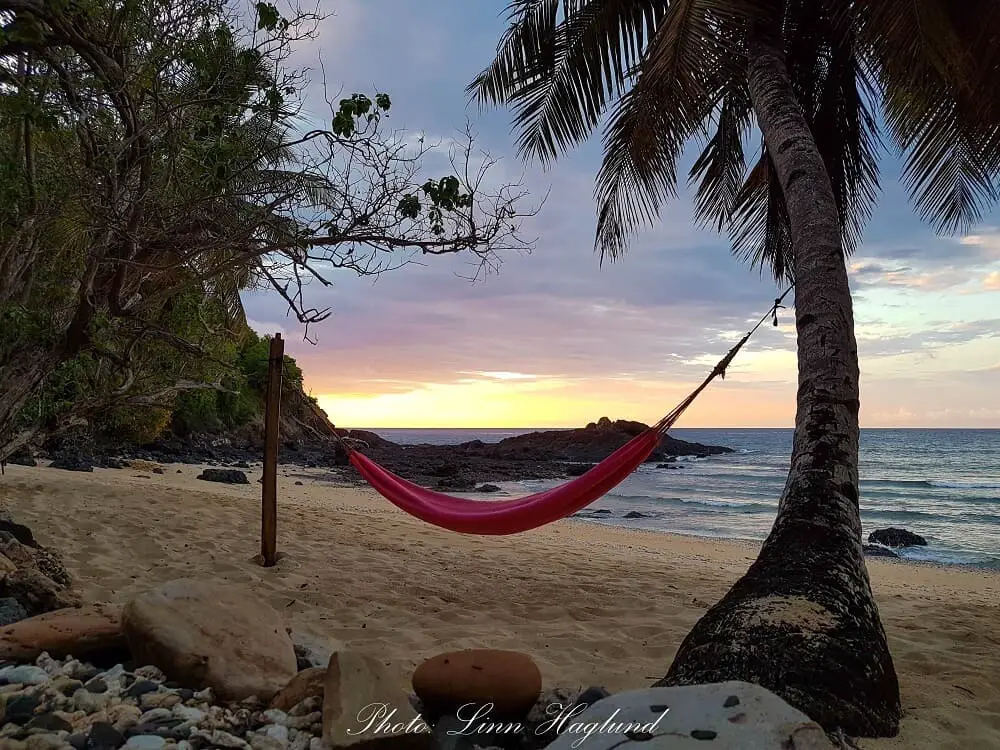
READ: Small tourism businesses are bleeding: How to support them when you can’t travel
Sustainable tourism explained
Sustainable tourism is a broad term and something I could talk about for hours. However, I won’t do that now, but I’ll give you a short insight in the meaning of sustainable tourism before we continue.
I like to divide sustainable tourism into three main areas: human welfare, animal welfare, and nature preservation. The aim is to make as little negative and as much positive impact as possible on one’s destination including its inhabitants.
PLANT A TREE with Click A Tree!
Human welfare
Human welfare is all about respecting the locals, conserving the culture, and supporting the local economy in a positive way.
Respecting the locals includes much more than you might think. It is not only about travelers respecting the locals where they travel. It also means that tourism development in a destination needs to involve the locals in decisions.
Is there anything you as a traveler do to impact this? Absolutely! As a traveler, you can book tours, accommodation etc. from local companies or organizations that work together with locals and give employment to locals.
Animal welfare
Animal welfare is becoming more and more important. According to The IUCN Red List a shocking 25% of mammals, 40% of amphibians, 14% of birds and 31% of sharks and rays are threatened with extinction.
Travelers can impact this positively by not taking part in unethical animal tourism and instead support organizations that protect animals and their natural habitats.
READ: Unethical animal tourism and what to do in stead: Animal rides
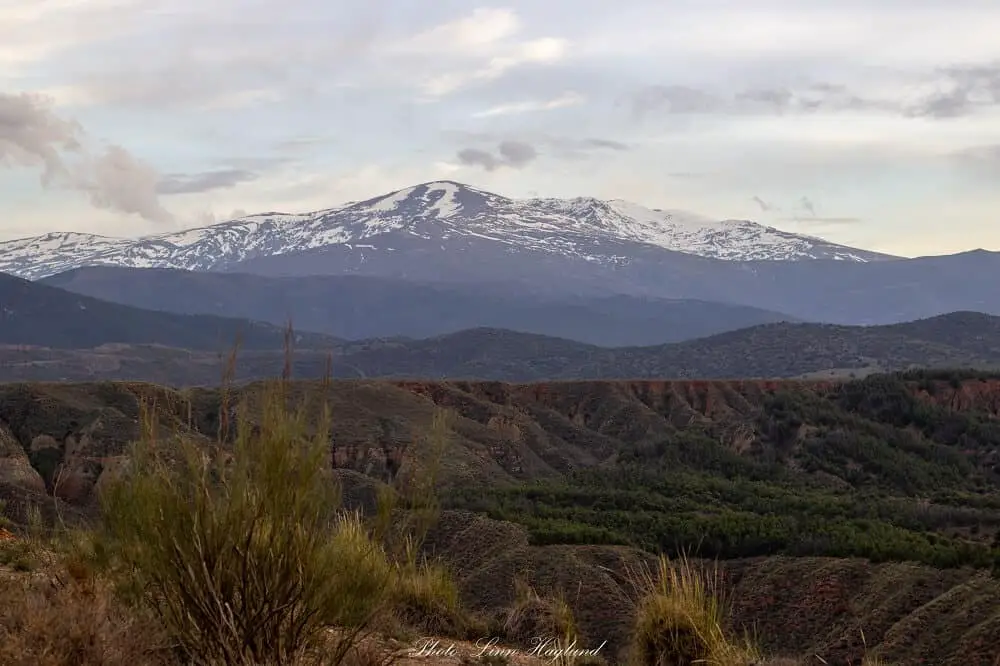
Nature preservation
Finally, nature preservation is another broad term. When I think about nature preservation I think about minimizing all negative impacts on nature.
This includes minimizing non-organic waste while traveling, minimizing contamination, using local, organic products, avoiding destinations exposed to overtourism, and supporting eco-friendly organizations.
READ: Is all armchair travel ethical?
It’s all an eco-system
All together these three main areas of sustainable tourism walk hand in hand and one thing affects the other. You can look at it as a sustainable eco-system. If one is supported while another one is disrespected, there is no value to your action.
As an example, if you pay a local tour guide to take you on a jungle trek and he starts feeding the wildife and throwing cigarette butts in the river, it doesn’t add much value to the susstainable eco-system that you support the local economy if the result is imbalance in the wildlife’s natural feeding and destroying their habitat.
Another example, where the sustainable eco-system is respected is if you buy local, organic hygiene products at your destination.
First of all, it supports local businesses which is a positive impact on the local economy and creates local employment. Second, the products will not harm corals and other sea life when it gets washed down the drain. This includes both fish and algae/corals.
You can read more about responsible tourism in my blog posts Things NOT to do as a responsible traveler and Tips for responsible travel.
This was a short intro to sustainable tourism. Now, let us see what travelers think are the most impactful benefits of sustainable tourism.
FOR MORE INFORMATION ABOUT SUSTAINABLE TOURISM READ HERE

Benefits of sustainable tourism
Now, let’s see what the experts in the industry have to say about the benefits of sustainable tourism and what you can do to maximize tourism benefits when you travel.
Protecting wildlife
By Chris of Global-Shenanigans
When left unregulated, wildlife tourism can quickly get out of hand, with profits coming before the wellbeing of the animals. This is not how it needs to be and there are many examples of when tourism can bring benefits to the protection of wild animals, as well as economic stability to people living in remote areas.
I am a multi-day sea kayak guide and expedition leader myself, I have worked on some truly incredible projects around the world that help elevate these animals and educate their guests. I have also seen some shocking business practises on my travels and have turned down numerous excursions due to moral objections.
It is important, as a paying customer, to look a little deeper into the tour you are about to sign up to:
Is this for the benefit of the animal?
Will the animal’s natural behaviour be affected by our presence?
What regulations are in place and does the company do anything to ensure the protection of the animal?
If a company can answer correctly to all of those questions, then supporting them with your money can bring positive changes to the wildlife.
An example of this done right is sea kayak whale watching tours in Canada. Canada is leading the world in marine mammal protection. There are regulations that must be followed when viewing the whales and if they are broken you can end up with a hefty fine and even in jail.
Also, by viewing the animals from a distance from a kayak, you are not polluting the water with sound or engine oil and are no different than just another seal.
Finally, many tour providers donate a percentage of their profits to marine mammal protection as well as making guests aware of where to put their money.
These non-profit charities have costs and they rely solely on donations. Who is likely to donate money to an animal charity? The same people that would give their hard-earned cash to go on a sustainable wildlife tour.
Wanted to dive into an ethical wildlife adventure of your own? Check out my upcoming expeditions.
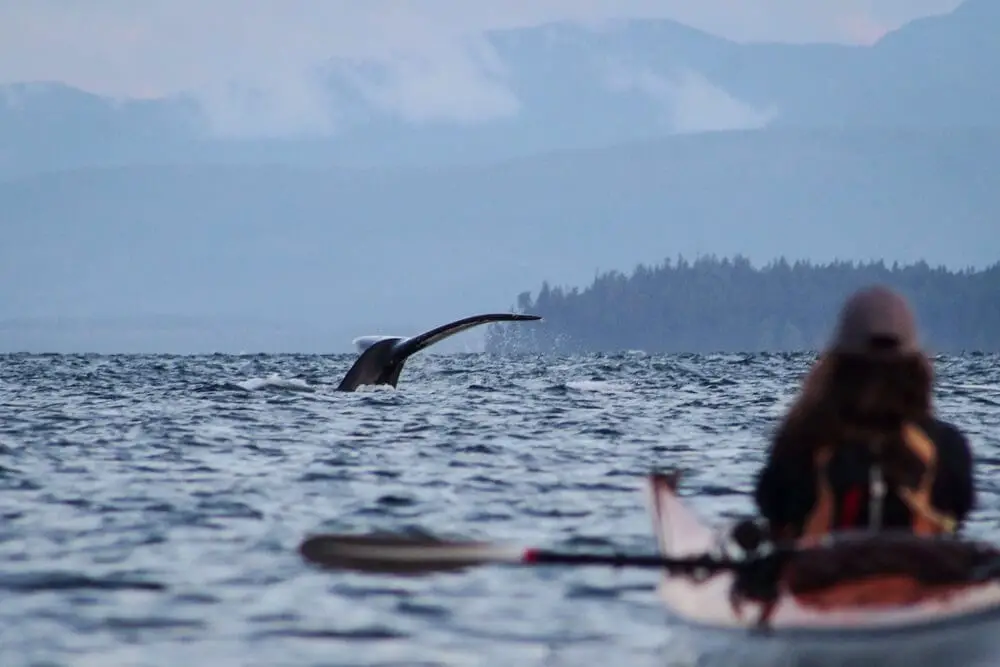
Protecting wildlife habitat
By Steph of Worldly Adventurer
There’s a lot of press now focusing on the negative environmental impact of tourism – but there’s a growing awareness that travel doesn’t have to be this way.
Guyana is a case in point. Under-the-radar for the majority of travelers, it’s a South American destination that has been quietly bringing visitors into close proximity with endangered species – all while protecting these creatures and their habitats.
Local people are leading these initiatives. By staying at Karanambu Lodge in the grassland region of the Rupununi, for example, your money goes towards supporting a giant river otter rehabilitation program that has attained worldwide recognition – and best of all, you might see some of these incredible creatures being rehabilitated.
Up-river, Caiman House is another community-led lodge that is leading on conservation, this time for black caiman. Visitors who stay at the lodge can join the researchers on a lively and informative evening out catching and tagging caiman as part of their academic studies into a creature that science, as yet, knows little about.
Further into the jungle, the indigenous-run Rewa Eco Lodge protects the once depleted population of arapaima, an enormous species of freshwater fish. Now, thanks to conservation and sustainable fishing, it has returned to healthy population levels and visitors can try their hand at catching this river giant on catch-and-release fishing tours.
Through their conservation work, Rewa has also worked to protect their land from logging and mining companies, therefore keeping the rainforest packed with incredible wildlife, such as jaguars, monkeys, and harpy eagle, that have become Guyana’s biggest tourist attractions.
Ultimately, you can find similar businesses doing their bit to protect wildlife and their habits across the globe. By visiting, you know that your money is going directly towards keeping the planet’s remote corners wild and pristine for generations to come.
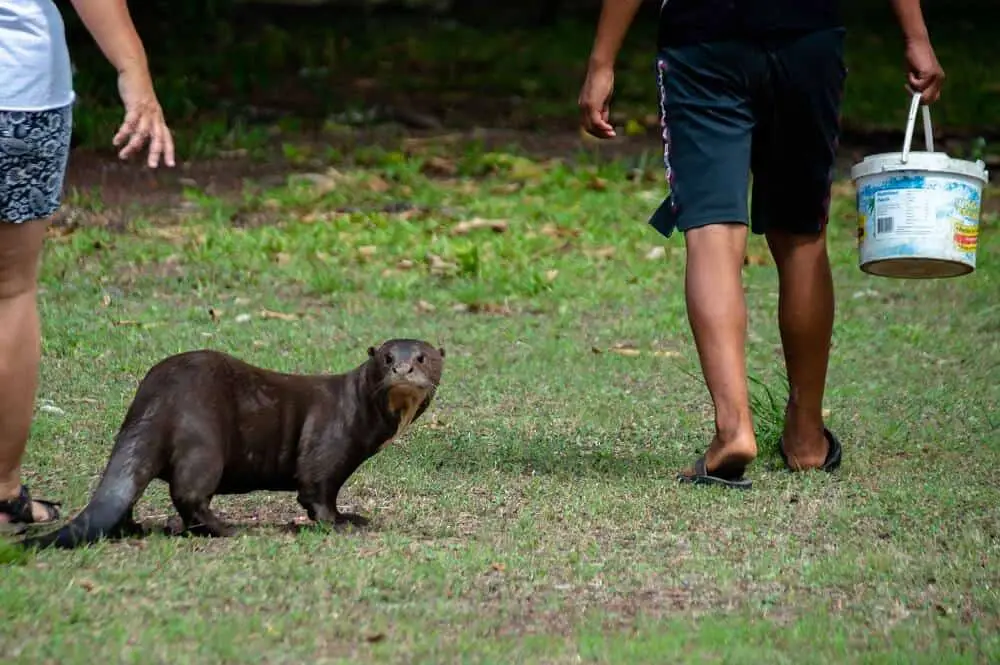
Discourage poaching through safaris
By Claudia of My Adventures Across The World
Safaris in Africa are fundamental to wildlife conservation. Though you may not realize this, they are a great way to discourage poaching, and thus contribute towards the protection of the local wildlife and natural environment.
Also the local communities involved in the work of lodges, camps, nature and game reserves such as Phinda in South Africa or Nabexa in Botswana, benefit from them.
When tourists are missing and safaris are not taking place, the real emergency in terms of conservation in African countries is that with the tourism coming to halt – and for an unknown amount of time – tourism money is lacking and local communities are suffering.
Thus they may end up falling for poachers’ money just for the sake of survival. This forces many companies that offer safaris and which are currently struggling with the effects of the crisis of the tourism industry to still keep their staff such as rangers and anti-poaching units active in private game reserves, to minimize the risk of poaching.
But the same can’t be done in national parks which are managed by government authorities. This only shows the huge advantages of sustainable tourism for African wildlife and how fragile it becomes without tourism.
Another thing to keep in mind is that where there are jeeps with tourists looking to admire wildlife, poachers will have fewer opportunities to go around as the areas will be regularly patrolled.
Needless to say, safaris have to be carried out in an appropriate manner, with few cars at one spotting and strict restrictions on the number of visitors in a park or reserve, and even speed limits within it.
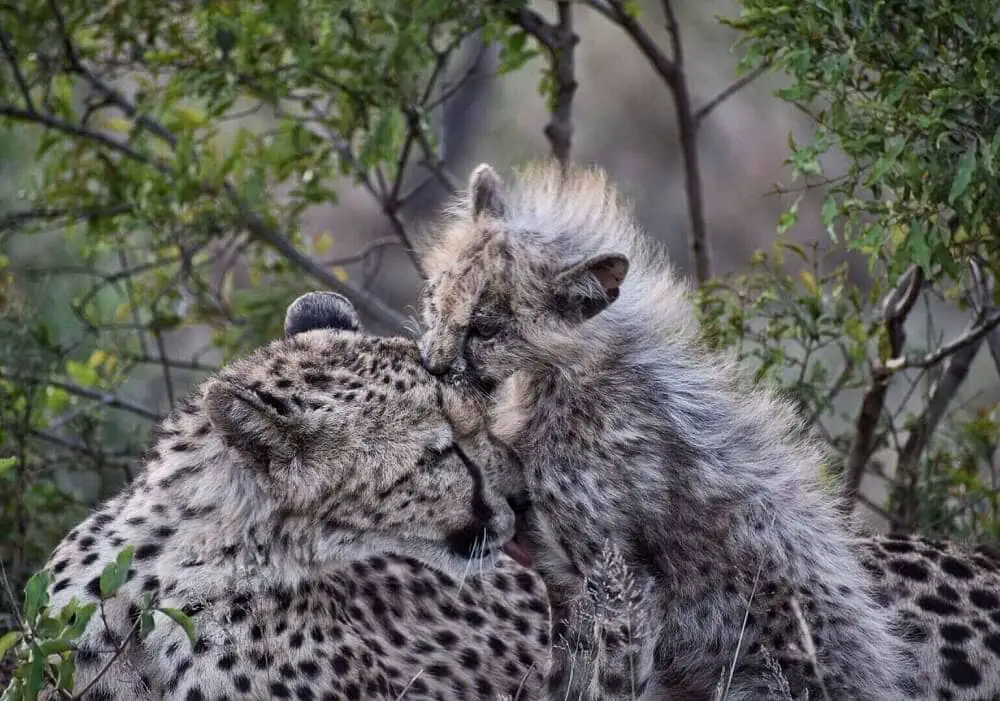
Use companies that give back to the local community
By Theresa of Brogan Abroad
One of the benefits of sustainable tourism is that by working with companies that give back to the local community, you are supporting the local economy. But that’s not the only benefit.
A good example would be Kasbah du Toubkal in Morocco, a hotel that has become a Berber Hospitality Centre. Despite it being partly owned by someone who is not from the area, it was built using only local materials in the style of the local buildings, it is fully run by local people, and all the food cooked in their kitchen uses only local produce.
This means that not only employees see the benefit of having this hotel in their local village, but also small producers and business owners.
The Kasbah has also set up an initiative that makes education accessible for everyone, particularly for girls, who will educate the next generation. The village is built in a valley where some of the areas are only accessible on foot, so the only option to carry cargo is by using mules.
The Kasbah has set up a care program to ensure that local muleteers are paid a living wage so not only can they provide for their family, but also look after their mule well. The mules are chipped and monitored regularly to ensure that they only work a certain amount of hours and their health and welfare is looked after.
By giving back to the community in this way, this community is now self-sufficient and is becoming prosperous. This is how important sustainable travel is!
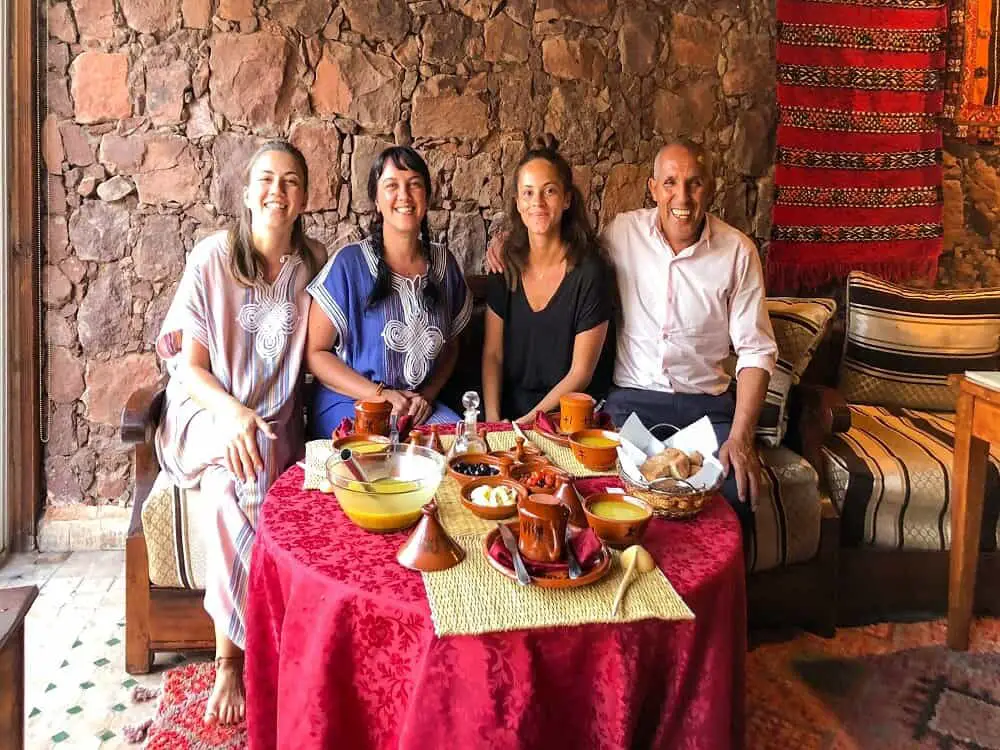
Book tours with environmentally friendly companies
By Ben of Horizon Unknown
Every traveler has a responsibility to leave a destination better, or at the very least, not worse than they found it. This helps ensure future generations have amazing places to explore.
One way of making sure beautiful parts of this world aren’t badly damaged by tourism is to book tours with environmentally ethical companies.
For example, Princess Divers on Thailand’s picturesque island of Phi Phi is a perfect example of a great company informing the traveling population of dangers we pose to the underwater world.
Not only do they educate on marine life and what we should be trying to help save, but they also explain the best ways to do that. From respecting these unique and beautiful creatures, to what sunscreen can damage coral reefs with the oils.
Helping preserve the fragile underwater ecosystem isn’t as hard as it sounds. There are some very effective resources and ways to do your part. Spending time with local and eco-friendly companies who care for the environment is a perfect way to learn and understand not only the best ways to help, by why we should all deeply care about the world we live in.
YOU MIGHT ALSO LIKE: Unethical animal tourism and what to do instead: Marine life
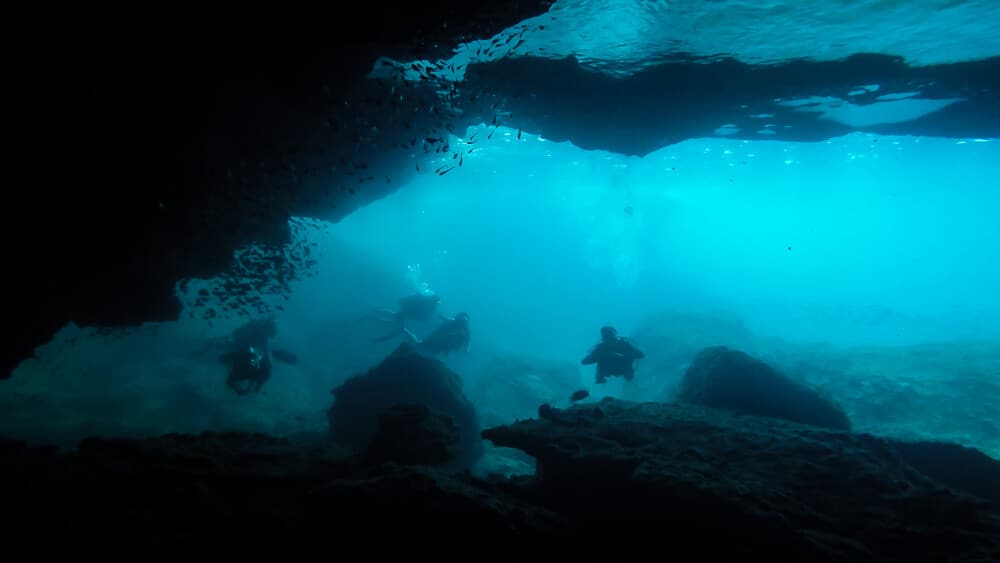
READ: Eco friendly camping gear & accessories
Attend workshops
By James of Travel Collecting.
I love taking workshops when I travel. This includes learning local handicrafts like wood block printing in India or mosaic tile work in Morocco, a crash course in the language or other cultural experiences.
However, I always try to book them either directly with the person who conducts the class or with a local organization that helps artisans manage this side of the business since many don’t have access to computers and/ or don’t speak English.
This is important because it ensures that the money I pay goes directly into the local economy, and especially into the hands of the artisans or teachers who conduct the workshops or classes. This way, I maximize the tourism benefits on the local community.
These kinds of experiences not only help give me a deeper insight into, and understanding of, the local culture, but they also provide an opportunity for artisans and teachers to earn additional income. This then helps artisans see that continuing to do traditional crafts is a financially viable option, which helps preserve cultural traditions as well as supporting the local economy.
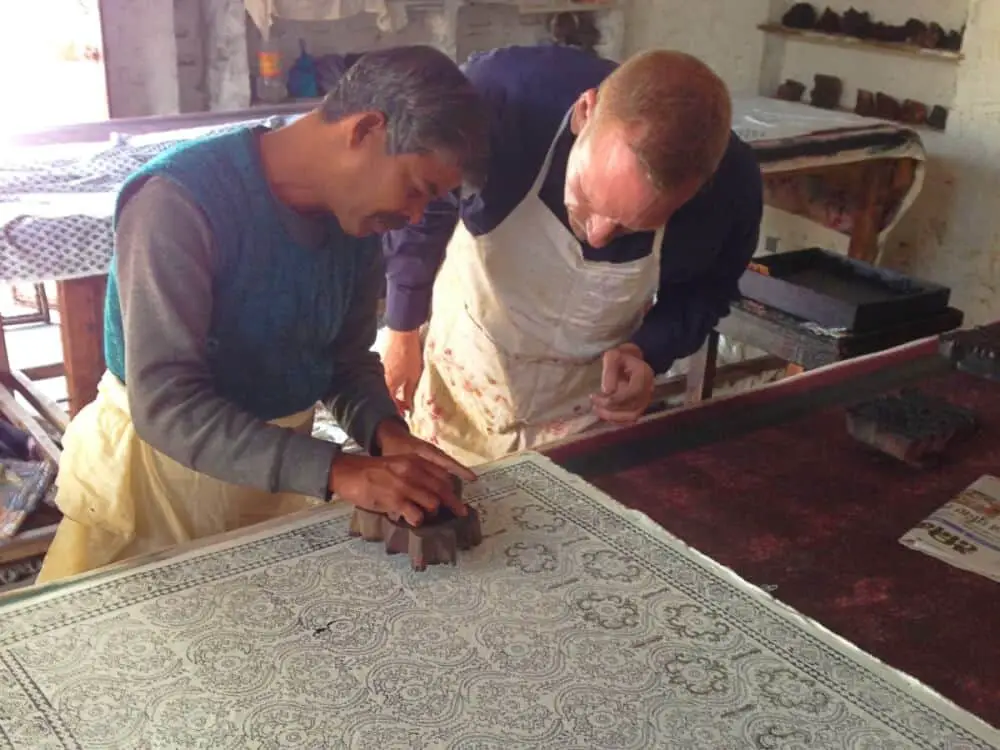
Economic benefits (also for the traveler)
By Gemma of Two Scots Abroad.
The impacts of sustainable tourism don’t only benefit the local community but also you, the traveler!
Staying with locals, volunteering your services and passing on your skills stretches your budget so you can travel for longer.
Programmes such as Workaway and HelpX give members the chance to volunteer their time and skills in exchange for at least a bed, often food. This saves money, often up to $10 a night in accommodation fees.
We did a variety of volunteer programs which varied greatly but they all had one thing in common, they saved us cash!
We spent three weeks volunteering in a boutique beach hotel in Nicaragua which included accommodation and two meals per day.
In Hungary, we were stuffed full of meals made with local produce.
In Spain, we dog sat in exchange for a private room and three self-made meals per day.
These savings meant we could budget for more expensive destinations like the USA and Canada. Well worth it!
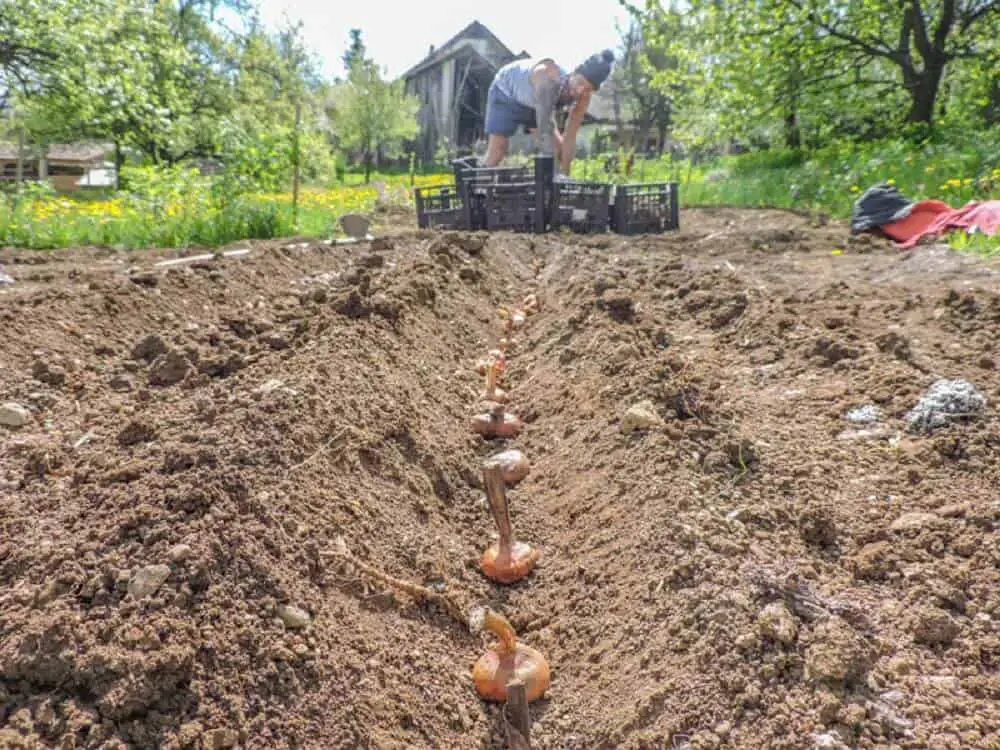
Homestays
By Emily of Wander-Lush.
Having lived and traveled in Southeast Asia for the past three years, I’ve experienced many of the downsides of unsustainable tourism firsthand.
Supporting local families, especially in rural areas, by spreading your tourist dollars beyond the big cities and chain hotels is one of the most important tourism benefits.
One way I seek to implement this in my own travels is by choosing to support homestays. Homestays in Vietnam and other countries in the region are particularly important because they give ethnic minority communities a chance to get involved with tourism.
Not only do homestays give tourists access to beautiful landscapes and off the beaten track experiences, but they also give you an opportunity to meet, interact, and learn from a local family.
Homestays are a great way to support the local economy, as they often give families and communities more autonomy over tourism, and a larger share of the profits.
Another upshot is the cultural exchange that happens between guests and hosts. For visitors, it’s a chance to learn something new and intimate about a culture – often by simply observing daily life.
In my experience, homestay hosts enjoy meeting, sharing, and learning from outsiders almost as much as the tourists do.

Taking public transport
By Jessica of Uprooted Traveler.
As a self-proclaimed tree hugger, I make sure to take public transportation as much as I can when I travel to a new city. The U.S. Department of Transit estimates that transportation accounts for a whopping 29% of current greenhouse gas emissions; by taking public transit, you’re choosing an option that transports more people with fewer vehicles and thus, reduces the strain on our environment.
While being green is one of the best aspects of public transit, there’s a myriad of other benefits. It’s statistically much safer than driving, especially if you’re unfamiliar with the local driving laws.
But it’s also significantly cheaper than renting a car or taking a taxi (and wouldn’t you rather spend your money trying new foods or exploring museums at your destination, rather than on taxis?).
However, there are more benefits of sustainable transport. By taking public transport you can see the city through the eyes’ of a local; there’s no better way to scope out New York City’s fashions than on the subway and where else are you going to eavesdrop on what Chinese urbanites are jamming to on their headphones other than the Shanghai metro?
Best of all, you will likely get the chance to interact with some locals. While I was living in Krakow, Poland one summer, I actually met one of my closest friends there by simply sitting next to her on the tram!
So on your next vacation, instead of hailing a ride share, take a bus, train, or subway- your wallet and more importantly, the Earth, will thank you.
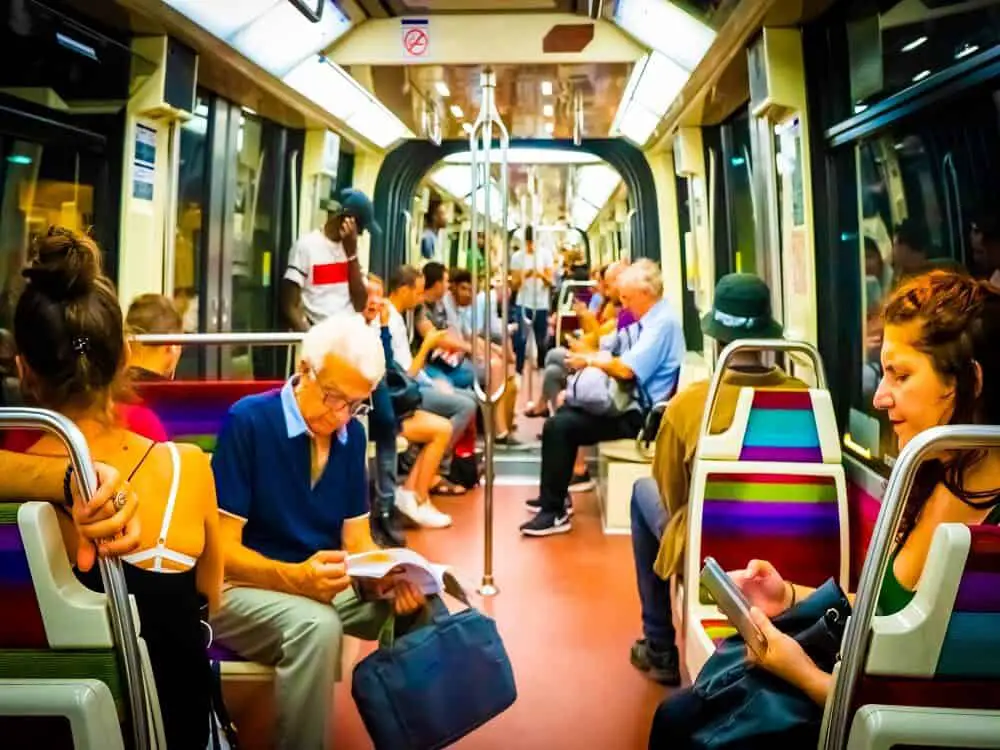
Better travel stories
By Ellie and Ravi of Soul Travel Blog.
When we talk about Sustainable Travel we tend to focus on the impact on the destinations we visit, the people who live there, and the environment.
Rightly so, but there’s another aspect of sustainable travel too, and we have found over the years that sustainable travel inherently leads to better experiences not only for the places we visit and the people we meet but for us as travelers too.
After all: A night in a beautiful eco-friendly lodge that has been built from sustainable materials and embraces nature is not only better for the environment – it’s better for our bodies and our stress levels too.
Connecting with local people and supporting their initiatives directly allows us not only to support the local economy and create a sustainable revenue stream through tourism, but it allows us to learn more about different cultures, deepen our understanding of a place, and even make a few new friends along the way!
The more we learn, interact, and engage in a respectful way with local people and enterprises when we travel, the more we come home with to share.
Some of our favorite travel memories from the years are not from bus tours or isolated luxury resorts, but instead from long train journeys where we’ve shared food and tea and jokes with local families, from cleaning beaches with local NGO’s and from learning about the work that local travel companies are doing to promote sustainable travel in their destinations.
It’s these kinds of experiences – we believe – that can bring us all closer together, too.
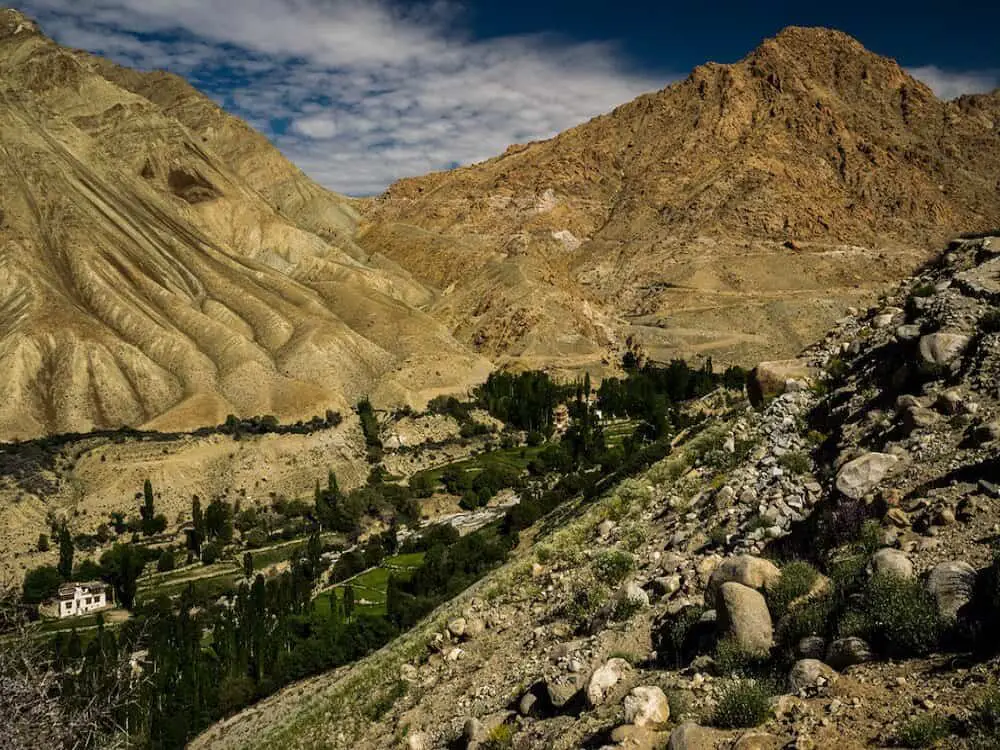
Unique meetings with locals
Of all the benefits of sustainable tourism, I believe that interacting with the locals at your destination is especially unique both for the travelers and the locals. It gives firsthand knowledge and understanding to the travelers about the culture and way of living.
Further, it gives knowledge about travelers to the locals. Many people don’t have the luxury of being able to travel, thus interacting with a traveler can become a window to the rest of the world.
I could ramble on about incredible experiences by spending time with locals on my travels, but I’ll leave that for another time. Today, you’ll have the honor of reading the unique stories of six traveler’s meetings with locals that marked them positively.
A meeting with local cocoa farmers in Jamaica
By Daniel James of Layer Culture
Being a cultural traveler I try my best to organize my trips as efficiently as possible. One special moment was when I spent a day with local people in Clarendon, Jamaica. I have an interest in chocolate and how it’s made and back then I was looking for somebody who could show me the process.
After quizzing locals as I was passing through a small parish, I managed to arrange a meeting to look around a cocoa farm. I learned everything from how to pick the cacao fruit to processing and everything in-between. I even bought some of the product from the family which I would later use to make my own chocolate bars.
This was not a tour, nor some prearranged tourist attraction. It was simply an act of generosity by the family. As I totally wasn’t prepared for the experience, they invited me for dinner and even offered to wash my clothes after the long and hard day in the bush working with the cacao.
After being on the island for a while you realize that tourism in Jamaica, especially outside of the posh hotels, is something that people don’t usually think about.
When we dig a little deeper we can create our own special experiences by going directly to the source. I have found people who live in rural areas are usually willing to share their way of life with outsiders and for that reason, I find myself always returning back to these types of rural environments.
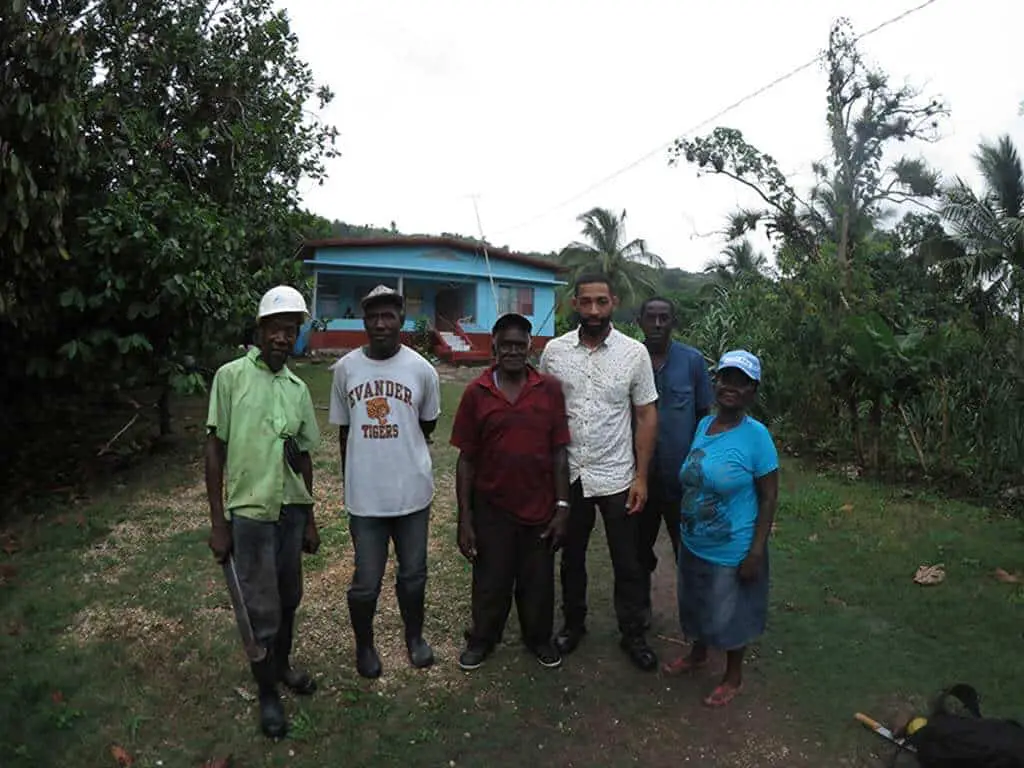
Having beers and watch the sunset with locals in Laos
By Darja of DeeGees Travel
Luang Prabang is a very popular place among Laos visitors, finding a quiet private spot to watch the sunset over Mekong river is, therefore, a real challenge.
Instead of going to the temple on top of the hill which undoubtedly offers fantastic views but is unbearably packed with tourists, we opted for going down to the river.
There, where small longtail boats rest after a busy day of entertaining people from all over the world, we found an inconspicuous dock perfect for a couple of us to sit and enjoy the view.
The small dock was reserved for a boat run by Ay – a charismatic and impossibly friendly Lao guy we’d meet after the sun sat down behind the limestone mountains.
As he was parking his boat, every night Ay greeted us warmly and assured we were most welcome to come back and enjoy the scenic sunset. We did. Almost daily.
On our last night in Luang Prabang we came back to our most favorite spot in the city. This time Ay didn’t have to rush to his next job and kindly invited us to join him and his crew for a couple of rounds of beer.
Although it was one of the cloudier evenings, this was undoubtedly the best sunset experience we’d had. We spent hours talking about Lao culture, popular music, living standards, and the entrepreneurial spirit Lao have.
Ay told us he wished there were more tourists interested in getting to know local people instead of focusing on snapping their next best Insta-picture. We couldn’t agree more.
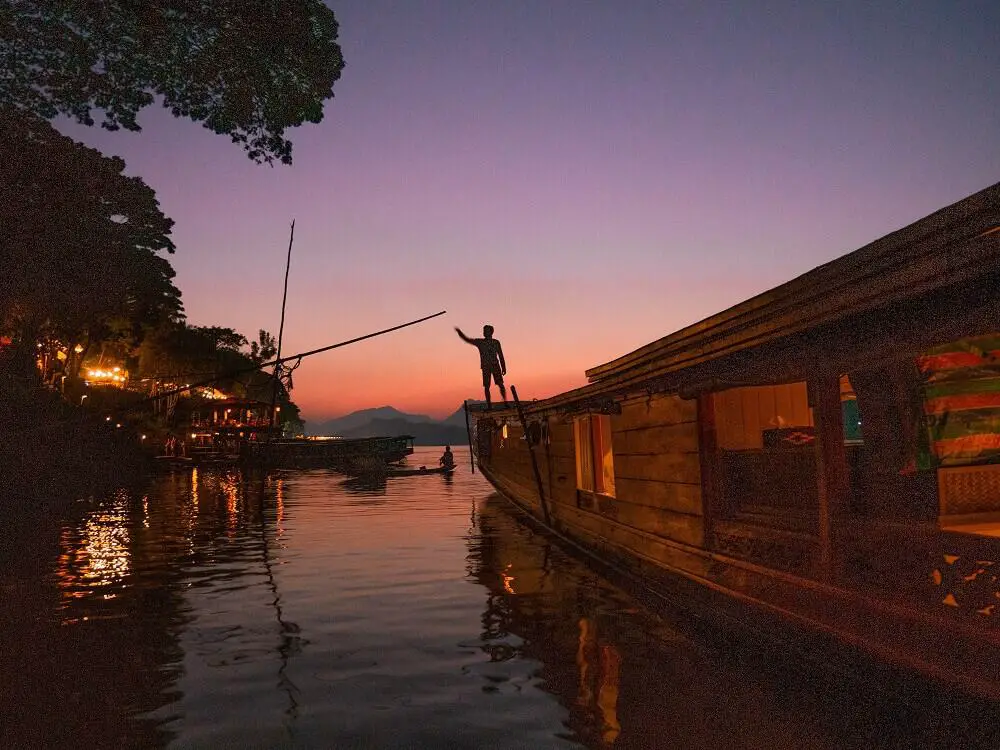
Surfing and feasting with locals in Morocco
By Kris and Brian of Gadsventure
My husband and I traveled to Morocco before we had kids, and met a couple of local guys in the small town of Asilah. They approached our dinner table one night and befriended us over henna tattoos and hash.
These guys were friendly and seemed so nice, and genuinely interested in us so when they invited us out to their farm for a real Moroccan feast and some surfing at a remote beach we jumped at the chance.
We rode on a horse and cart for around 3 hours to get there and found a cute little commune of clay houses around a little farm, sitting atop a grand cliff with views forever.
The promised traditional Moroccan tagine was cooked down on the beach over an open fire while we explored the crumbling cliffs reminiscent of pirates and smugglers and we ate it while watching the sun sink into the Atlantic Ocean.
It was an incredible experience, we felt like we were the only people on the planet. The next morning, after multiple attempts to try to get us to stay longer, we decided we needed to get back to town and headed off on foot along the coastline towards the distant town through many goat farms, walking all day to get there.
The young men were able to find out where we were that night and came to join us once again, presenting us with a nice bill for their hospitality. That lamb tagine remains about the best food I have eaten in my life and that story will stay with us forever.
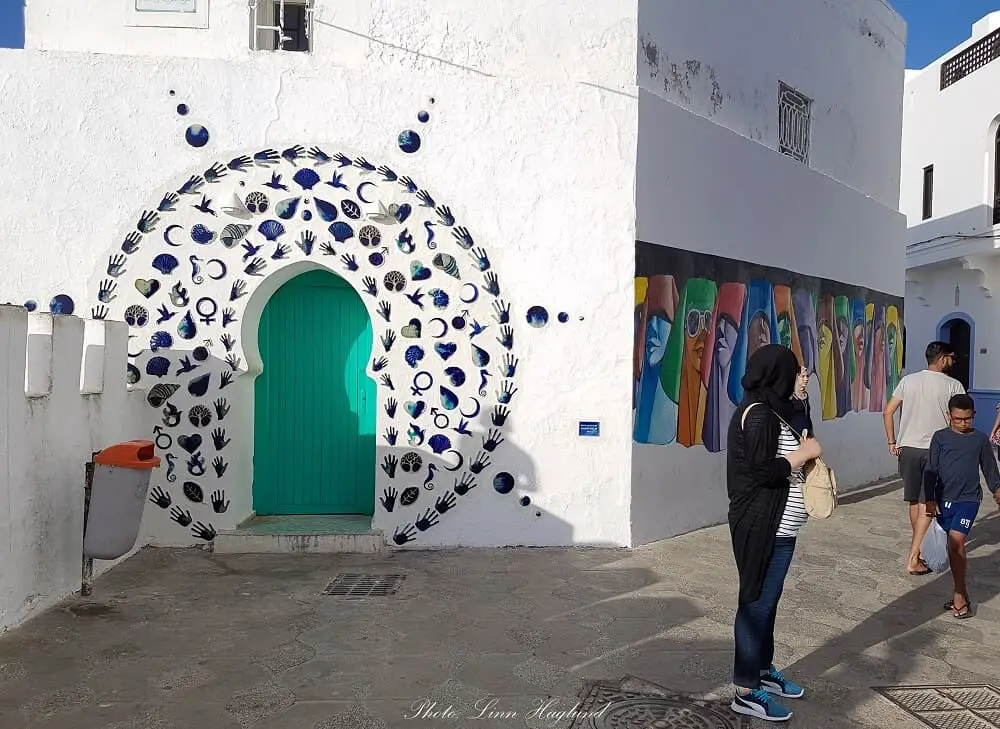
Charing homemade Limoncello with a local in Italy
By Charlotte of A Wandering Web
While traveling through Italy, my husband Darryl and I stayed at an Airbnb in Mirano, a community 19 km from Venice. Guido, the elderly gentleman who owned the home, made our stay an exquisite one.
We had a connection with Guido from the beginning. He rolled out the welcome mat by inviting us down for homemade Limoncello beneath the oak tree in his yard.
We visited until late in the night where he told stories of his family and past. He brought out pictures of the house we were staying in and shared the account of how he had got the house back.
His dream is to turn the property into a vacation rental for people wanting to have a true Italian experience. The house was in ruins when he purchased it. Originally his childhood home, Guido has transformed the crumbling structure into the best Airbnb we stayed at in Europe.
Guido’s English was shaky; however, we made it work and communicated the best we could. The Limoncello had something to do with us understanding each other the longer we talked. More Limoncello improved our Italian and Guido’s English!
Guido did other things to give us a memorable visit too. Aside from nightly visits under the tree, he left a bottle of wine outside our door, brought us into his house, and gave us fresh eggs from his chickens for breakfast. One evening, Darryl helped Guido herd one of his rogue chickens into the coop.
Thanks to technology, we keep in contact with Guido. We felt a true taste of Italy and we look forward to the day we can go see Guido again and sip Limoncello under the oak tree. As Ruth Reichl states, “Pull up a chair. Take a taste. Come join us. Life is so endlessly delicious.”
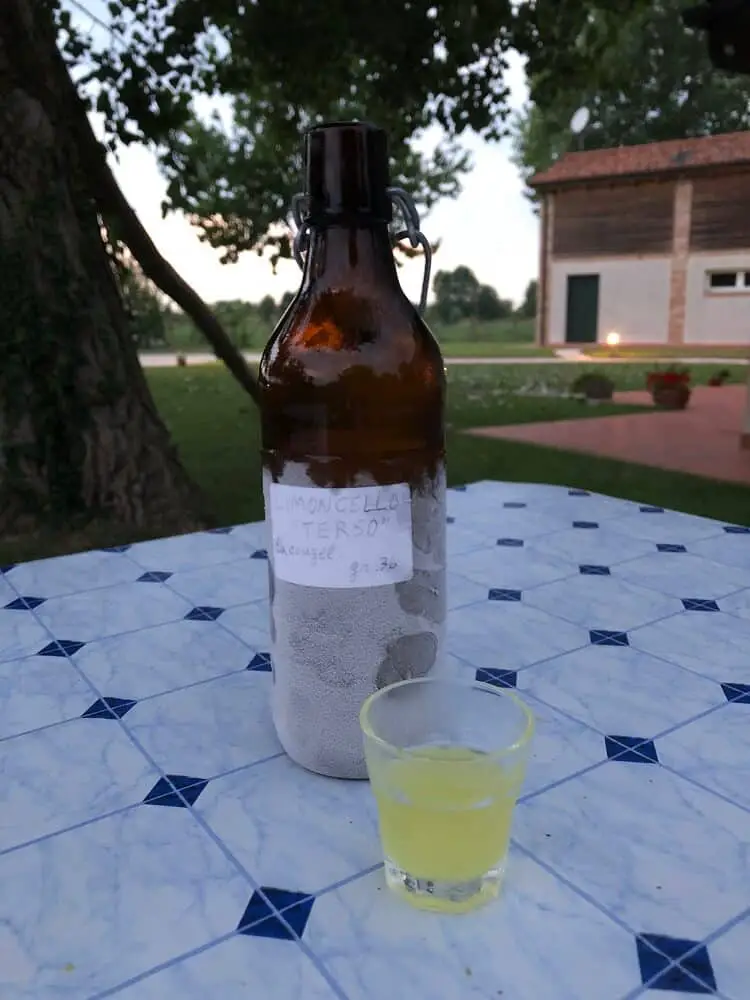
Traditional Arabian food feast with locals in Jordan
By Wahyuni of Writerwkamah
I was sitting on the carpet in the living room of my friend Basil’s house in Jerash, Jordan. It was my first day staying at his home, a typical traditional Arab family home.
It was lunchtime, and the men were sitting in front of the television watching the news, while the women were busy working in the kitchen. The room had no chairs, only a pile of round cushions that they used as pillows at night.
Basil’s sisters were preparing for a special meal for me as their guest. As the food was ready, the men formed a circle on the floor. As I was a guest I was allowed to sit with them, despite being a female.
The only other female in the room was Basil’s mother. I was waiting for the plates and utensils to be distributed but they never came.
Two girls showed up from the kitchen, they carried a big round stainless plate of rice with chicken and condiments on top of it. It was huge. They put the plate on the carpet.
Then, milk was poured on the rice. Everyone started eating the food using their right hand. It was new to me, and I couldn’t help asking for a spoon.
The lunch turned out to be a unique happening to me, experiencing the way a traditional Arab family eats their meal together.

Drinking tea with Moroccan nomads
By Hamish of My Travel Fix
I glanced again at my watch – it was 3:34 in the afternoon. We’d be driving through Morrocco north from Marrakesh through the Atlas Mountains for nearly seven hours now and by my calculations, it was going to be another 7 until we reached Chefchaouen.
The thermometer on the dashboard of our beat up Toyota had long since broken but it must have been at least forty degrees. At last, our driver pulled over and we stopped in the heat of a deep, rocky valley surrounded by dry bushes and a small stream. We stepped out and breathed in the hot, fresh air.
As we rested in the shade our guide pointed out a series of caves that scattered across the valley’s bank like the seeds on a strawberry. There were hundreds of them. As we looked a little closer, we noticed whiffs of smoke gently flowing from the about half of them.
Our guide stood and gestured us to follow, cutting a steep path up the valley’s flank towards the nearest cave. It was a treacherous climb, but after 20 minutes we made it to within 20ft of the entrance.
Suddenly, there were livestock: chickens, sheep, and goats. Blankets and clothes hung on thin wires, drying in the gentle breeze. And, people. People, inside the cave working and bustling about the place. This wasn’t a cave – this was a home.
They came out to greet us warmly, with toothless smiles and a course hands. Speaking no English, we were ushered inside and invited to sit around the dusty hearth in the caves blackened center.
Tea was brewed with fresh mint and honey and handed to us gingerly as the smiling faces waited for our approval. I sipped it gladly to much applause and shared laughter.
They were Nomads, living in and among these caves for hundreds of years, free from law and convention. They had very little, except their goats, and each other. We were invited into this hidden world, carved out of the valley without pre-conceptions or judgment, offered what little they had to sit and drink and laugh in care-free isolation.
It was a magical and unique experience, totally unexpected, that I shall cherish to the grave. Within 30 minutes, we were on the valley floor once more, looking up at the small, waving figures now towering above us. A true adventure, I thought. Morocco off the beaten track. You won’t find that in the tour guide.
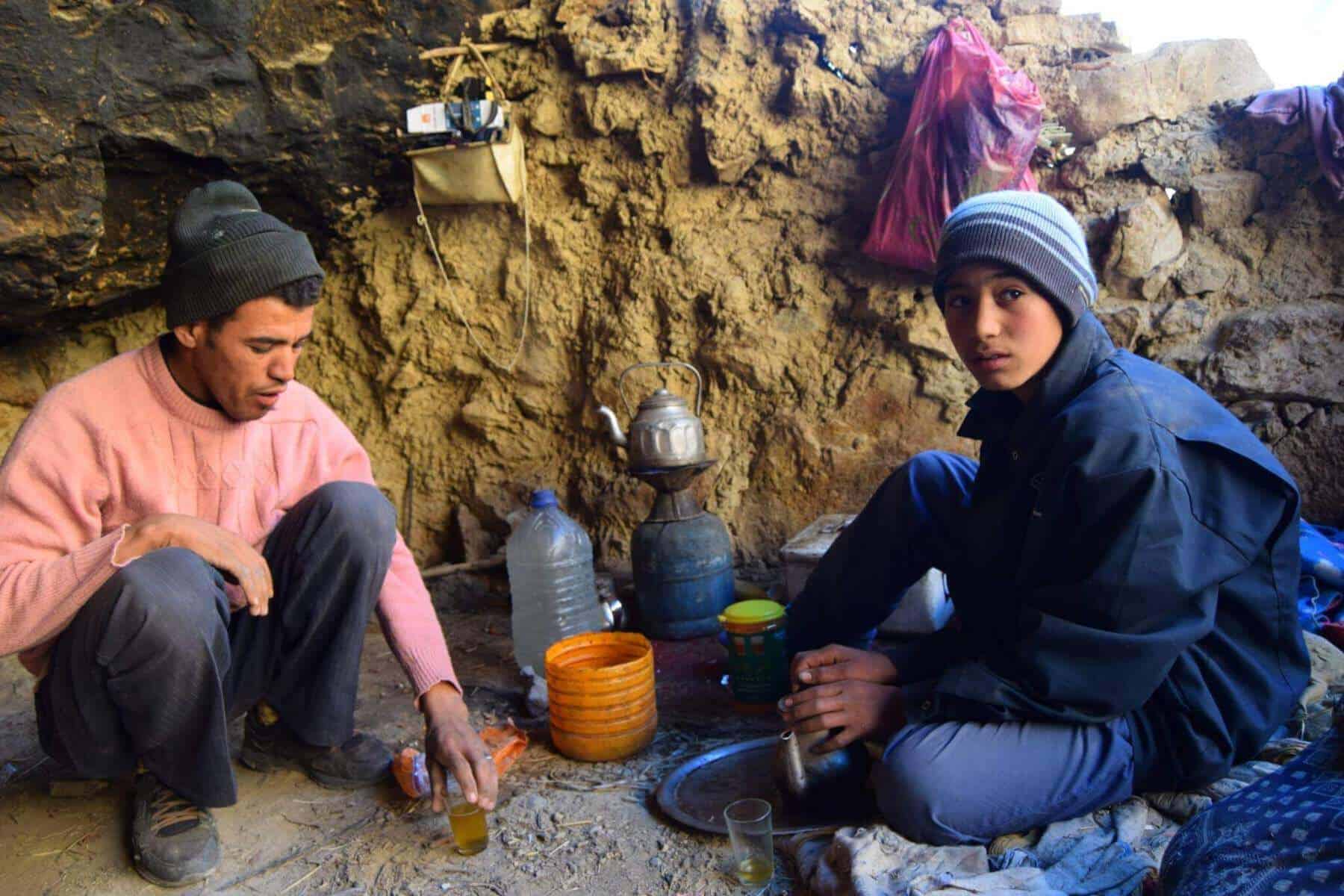
Reflections on tourism benefits
Looking at these amazing stories and thoughts about the benefits sustainable tourism has, there is no doubt sustainability is important for both travelers and locals.
I want to thank all of the above inspiring travel bloggers for sharing their knowledge on the subject as well as their stories.
Do you have any thoughts about the advantage of sustainable tourism or would you like to share an interesting meeting with locals? Please share it with us in the comments.
Did you like this? Pin it for later!
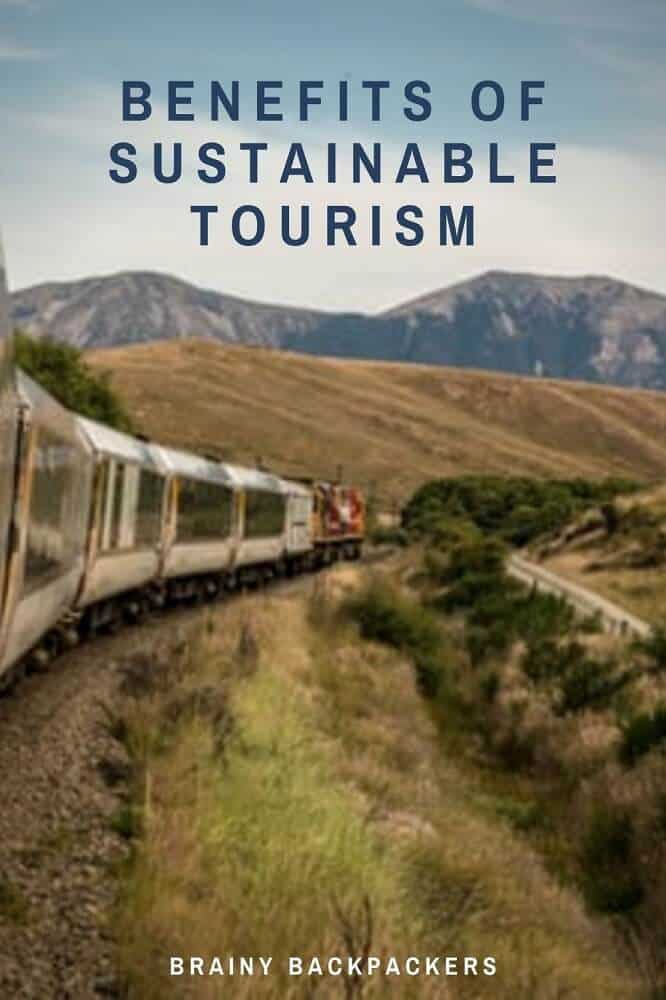

There are some incredible experiences here! I am proud to be a part of this post. Thanks for the education and inspiration 🙂
Hi Charlotte! I really appreciate your comment. It was absolutely an incredible post to work with and I love your inspiring stories. These stories are what makes traveling such a unique experience.
Great article and fantastic stories shared! 🙂 Thank you for letting us be a part of this 🙂 This kind of experience should be told more, so that it becomes a more standard practice among those traveling and hosting 🙂 In the end of the day, travel is just another way for humans to connect and share their unique life stories.
I totally agree. It is the best part of traveling, connecting with people. Thank you for sharing your unique story with the world.
Wow, this is a beast of a post. Good work compiling it. It’s easier than ever these days to travel in a sustainable way. And I definitely get down and interact with the locals and the local way of life. It’s basically the whole reason why I travel!
Thank you so much, Tony:) Yes, you are really traveling in the best way possible, volunteering around the world. Truly inspiring. One day I will do the same!